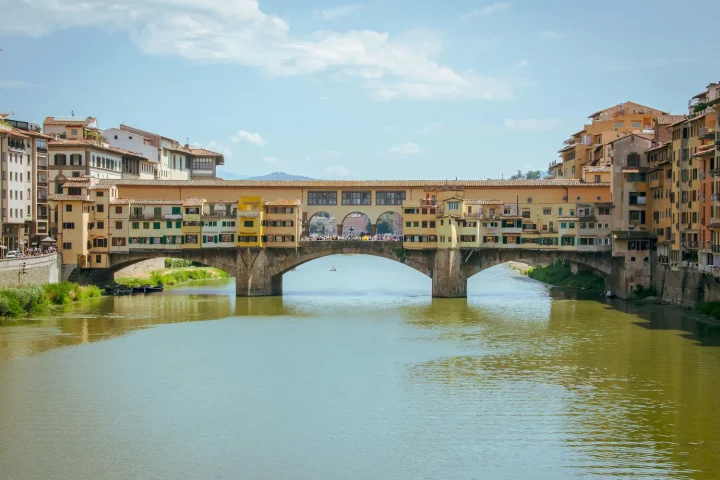Italian citizenship is a desired status, especially for those with ancestral ties to the country. It’s primarily passed down through jus sanguinis (right of blood), meaning that if you have an Italian parent or grandparent, you might be eligible for citizenship. However, there are instances where this citizenship can be lost.
On the flip side, there are also clear paths to reclaim it, depending on your circumstances. This guide aims to provide a comprehensive understanding of the process involved in the loss and reacquisition of Italian citizenship.
Ways to Lose Italian Citizenship
Acquisition of Another Citizenship:
Before 1992, Italian citizenship was automatically revoked if an individual acquired the citizenship of another country. This policy primarily affected descendants of Italians who emigrated to places such as the United States, Brazil, and Argentina, where acquiring local citizenship was often a necessity. This revocation meant that countless individuals with Italian roots lost their citizenship simply by becoming naturalized citizens elsewhere.
Voluntary Renunciation:
In rare instances, some individuals might choose to voluntarily renounce their Italian citizenship. This often occurs when another country requires such a renunciation as a condition for granting its citizenship. While this is not a common scenario, it’s worth noting that the voluntary renunciation of Italian citizenship is a legally recognized process.
Reacquisition of Italian Citizenship
Automatic Recovery:
Since 1992, the laws surrounding Italian citizenship have evolved, providing a lifeline to those who lost their citizenship upon acquiring another. Italians who found themselves in this predicament can now regain their citizenship automatically by residing in Italy for a continuous period of one year. After this period, their citizenship is restored, effectively reconnecting them with their Italian heritage and the benefits that come with it.
Judicial Process:
For some, the path to regaining Italian citizenship may involve legal proceedings. This is particularly true for individuals whose citizenship was revoked due to complex bureaucratic or historical reasons. For instance, women married before 1948 faced discriminatory laws that only allowed citizenship to be passed down through the paternal line. These outdated laws have been challenged in court. Nowadays, one can apply for citizenship through a judicial process that can restore citizenship to those affected.
Take advantage of specialized assistance to secure your passport for a borderless future.
Requirements for Reacquisition
The cornerstone of regaining Italian citizenship automatically is establishing legal residency in Italy for one year. This process involves obtaining an initial visa, registering your residence with local authorities, and adhering to various legal requirements. Ensuring that all residency requirements are met is essential to avoid complications in the citizenship reacquisition process.
It is important to highlight that one cannot reacquire Italian citizenship through a consulate. You must apply for reacquisition at their local commune. However, contacting the nearest consulate for information is encouraged, and you might find the information you need on their official website.
As for the documents you will need before going to Italy, it is advisable to send the following to the nearest Italian consulate: an Italian birth certificate, a copy of the US naturalization certificate, copies of your US passport and driving license, or a utility bill for address verification.
If you aren’t a US citizen or resident, ensure you check with your country’s nearest consulate to identify the proper documentation needed to apply for Italian citizenship.
Possible Risks and Difficulties
Navigating the bureaucratic landscape can be challenging, particularly for those who do not reside in Italy. The process of regaining citizenship, although well-defined, can be lengthy and fraught with administrative hurdles. Hiring the services of a specialized consultancy or legal expert can significantly ease this burden, ensuring that all procedural requirements are met and expediting the application process.
In certain cases, ambiguities in old legal records or the complexity of historical citizenship laws can pose significant challenges. These issues require a detailed analysis by legal professionals who specialize in Italian citizenship law. Addressing these complications early in the process is crucial to prevent unforeseen obstacles and ensure a successful outcome.
A Path to Restored Citizenship
For those who have lost their Italian citizenship, the journey to regaining it offers a unique opportunity to reconnect with their heritage and enjoy the benefits of being an Italian and EU citizen. This status not only provides a link to one’s cultural roots but also opens doors to numerous rights and privileges within the European Union. Preparation and adherence to legal requirements are paramount in this process. By carefully following the necessary steps and seeking expert guidance when needed, individuals can successfully navigate the path to restored citizenship.
Reacquiring Italian citizenship is a process rich with historical significance and personal meaning. It represents a reclaiming of identity and a renewed connection to a storied heritage. As such, it’s a journey worth embarking upon for those who value their Italian roots and wish to fully embrace their place within the broader Italian community.
If you want a smooth and efficient path to Italian citizenship, consider hiring expert assistance, such as io.citizen. Our team is ready to make your dream come true. Contact us today!






